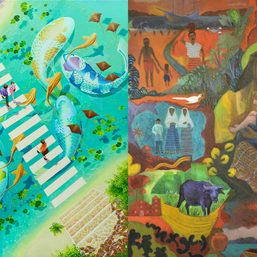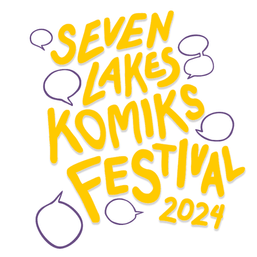SUMMARY
This is AI generated summarization, which may have errors. For context, always refer to the full article.
 Recently I ranted about an archaic term now being repeatedly used to describe a Philippine senator and presidential contender. Speaking of language, whatever happened to “good,” the guy in the Maxwell House coffee ad asks, expressing my very thought.
Recently I ranted about an archaic term now being repeatedly used to describe a Philippine senator and presidential contender. Speaking of language, whatever happened to “good,” the guy in the Maxwell House coffee ad asks, expressing my very thought.
Indeed, who retired that once-rampant but understated catch-all synonymous to “nice” and “OK”?
I don’t know when “good” replaced “fine” and “well,” but I can still hear my high school mentor Mrs Gil chastise those prone to uttering such “trite” terms.
In my teens, “OK” described everything. Somehow the term became “OK lang,” as in “just fine” (“lang” being Filipino for “only” or “just”) and the more hip “it’s cool,” equally benign if ambiguous but better than “so-so.”
Dig this chat:
Kumusta? (How are you?)
OK lang. (Just OK)
Toke?
OK lang.
Let’s join the protest rally against martial law?
OK lang.
Decisions were unnecessary stress where life supposedly was simple. Then. Now everything’s supersized. Forget monosyllables in this digital era. Superlatives supersede adjectives of yesteryear.
If you grew up in the eighties you probably rocked a mullet, waist-high stone-washed baggy jeans, and gushed “totally awesome” at most anything.
Awesome, amazing
“Awesome” is my ex-town mayor’s stock response to my emails, and he just turned 40, obviously inspired by Back to the Future.
Really? My messages fill him with reverence or fear, which defines the verb “awe”?
For sure, some things truly are “awesome”: The Northern Lights. The Grand Canyon. Mayon Volcano. The 2004 Tsunami. Typhoon Haiyan.
Nature is the true awesome: Sights and occurrences that drop your jaw, blank your mind.
But a note? Coffee? Not even the brew from exotic civet-extruded cacao can freeze the brain.
I can see Mrs Gil cringing in her library in the sky, itching to lecture Mr ex-mayor on what “awesome” means, that it cannot possibly be any less or more or other than “totally.”
“Awesome” is. Period.
Then the 1980s stretched to the 1990s. Gen-Xers grew up and Millennials grabbed their own buzzword: “amazing,” the new “awesome.”
If to awe is to fill with fear and reverence, to amaze is to overcome with wonder and surprise, according to the omniscient Merriam-Webster.
Same idea. Equal to “incredible” and “phenomenal,” adjectives triggered by Google or Facebook in its infancy. By anything or anyone transformational. Think: Mahatma Gandhi, Nelson Mandela, Ninoy Aquino, Aung San Suu Kyi.
Martyrs, they’re amazing.
Chewing gum or toilet paper, as those ads tout? Nah.
Language is a living art that changes with the times – and ethics, per the Associated Press – it reflects and reveals more about the speaker than intended. Does he parrot what he hears? Is she aware of what she’s actually saying?
Beyond this era of hyperbole, what can possibly follow “amazing”?
Can’t wait for my 17-month-old grandson’s gibberish to become actual words. – Rappler.com
Cherie M Querol Moreno is a keen observer of the evolving Filipino American community in the San Francisco Bay Area, subject of her 30 years of reporting for and editing Filipino-American publications. She founded and directs the family violence prevention nonprofit ALLICE Alliance for Community Empowerment and sits on the San Mateo County Commission on Aging. ‘Unbound’ is her long-running column which will now be published regularly on Rappler.
Add a comment
How does this make you feel?




![[Ilonggo Notes] The foremost Filipino engraver, sadly unremembered, needs to be given his due](https://www.rappler.com/tachyon/2024/03/Figueroa-.jpg?resize=257%2C257&crop=265px%2C0px%2C720px%2C720px)
There are no comments yet. Add your comment to start the conversation.